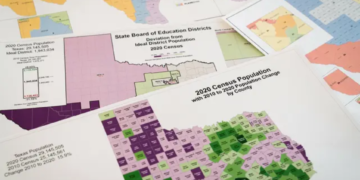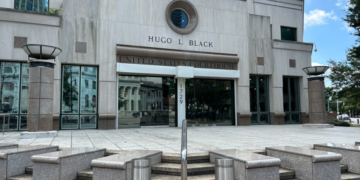May 14, 2024 Story by: Editor
During Tuesday’s oral arguments, a full panel of federal appellate court judges found themselves divided over whether a coalition of voters of color should receive the same protections under the Voting Rights Act as a single group of protected citizens in a Galveston County redistricting case.
The 5th U.S. Circuit Court of Appeals wasn’t tasked with determining whether Galveston County commissioners discriminated against Black and Latino voters when dismantling a district primarily composed of voters of color. Instead, the judges considered whether a coalition of Black and Latino voters should be afforded equal protections under the 1965 Voting Rights Act.
While some judges cautioned that extending protections to groups of minority voters could lead to a surge of discrimination claims, others saw merit in including coalitions in the Voting Rights Act to prevent voter dilution.
Judge Dana Douglas emphasized the need to interpret the Voting Rights Act broadly to combat racial discrimination effectively.
The case originated from concerns that local officials violated the rights of Black and Latino voters during a precinct redrawing process. Nicolas Riley, representing the Justice Department, argued that Galveston County’s redistricting efforts harmed both Black and Latino voters, suggesting they should be treated as a single “class” under the Voting Rights Act.
However, Judge Edith Brown Clement expressed skepticism, suggesting that the Supreme Court would have addressed coalition voters in previous rulings if they were a valid concept.
Joseph Nixon, representing Galveston County, contended that the Voting Rights Act only bars discrimination against a single group of voters. He warned against allowing coalition claims, arguing that it could lead to political manipulation.
The judges grappled with the complexities of racial identification, particularly for mixed-race individuals, highlighting the challenges of categorizing voters into singular groups.
The case underscores the ongoing debate over the interpretation of the Voting Rights Act and its application to diverse voter coalitions. The 5th Circuit has yet to announce a ruling on the matter.
Source: The Texas Tribune

















